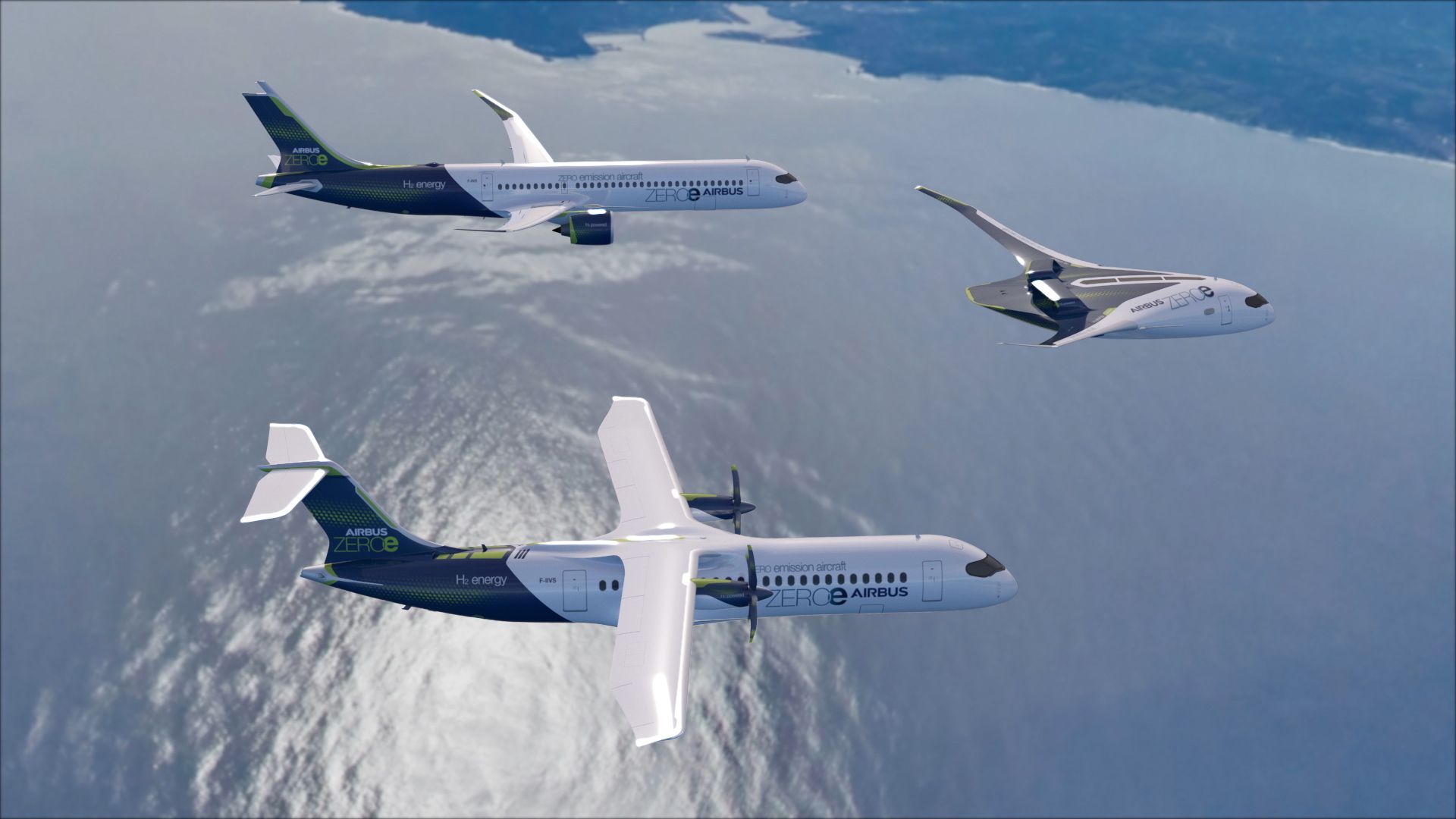
Three concepts for the world’s first zero-emission commercial aircraft have been unveiled by Airbus.
The European plane-maker claimed the hydrogen-fuelled aircraft could enter service by 2035.
The ZEROe designs represent three different approaches to how technology and aerodynamics could lead to zero-emission commercial flights.

Airbus chief executive Guillaume Faury said: “This is a historic moment for the commercial aviation sector as a whole and we intend to play a leading role in the most important transition this industry has ever seen.
“The concepts we unveil today offer the world a glimpse of our ambition to drive a bold vision for the future of zero-emission flight.
“I strongly believe that the use of hydrogen – both in synthetic fuels and as a primary power source for commercial aircraft – has the potential to significantly reduce aviation’s climate impact.”
Airbus claimed its turbofan design could carry up to 200 passengers more than 2,000 miles, while a turboprop concept would have a 50% lower capacity and range.
The most distinctive design is named the “blended-wing body” plane, which has the wings merging with the main body of the aircraft.
All three planes would be powered by modified gas-turbine engines that burn liquid hydrogen as fuel, and through hydrogen fuel cells to create electrical power.
This would create a “highly efficient hybrid-electric propulsion system”, according to Airbus.
Major investment in refuelling infrastructure at airports would be required for commercial hydrogen-powered planes to be viable.
Mr Faury said: “These concepts will help us explore and mature the design and layout of the world’s first climate-neutral, zero-emission commercial aircraft, which we aim to put into service by 2035.
“The transition to hydrogen, as the primary power source for these concept planes, will require decisive action from the entire aviation ecosystem.
“Together with the support from government and industrial partners we can rise up to this challenge to scale up renewable energy and hydrogen for the sustainable future of the aviation industry.”
EasyJet and Airbus launched a joint research project last year to consider hybrid and electric aircraft as a way of reducing the environmental impact of aviation.
The airline’s chief executive Johan Lundgren said: “EasyJet remains absolutely committed to more sustainable flying and we know that technology is where the answer lies for the industry.
“We are committed to collaborating on the development of these new technologies – as demonstrated by our partnership with Airbus – with the aim of being an early adopter when they come to market.
“It is testament to the innovation and drive of this industry that, despite the pandemic and the immense impact it has had on the industry, technological breakthroughs continue to come.
“One thing is for certain: confidence in the power of disruptive technologies such as electric and hydrogen to reinvent aviation is gaining momentum.”


Comments: Our rules
We want our comments to be a lively and valuable part of our community - a place where readers can debate and engage with the most important local issues. The ability to comment on our stories is a privilege, not a right, however, and that privilege may be withdrawn if it is abused or misused.
Please report any comments that break our rules.
Read the rules here